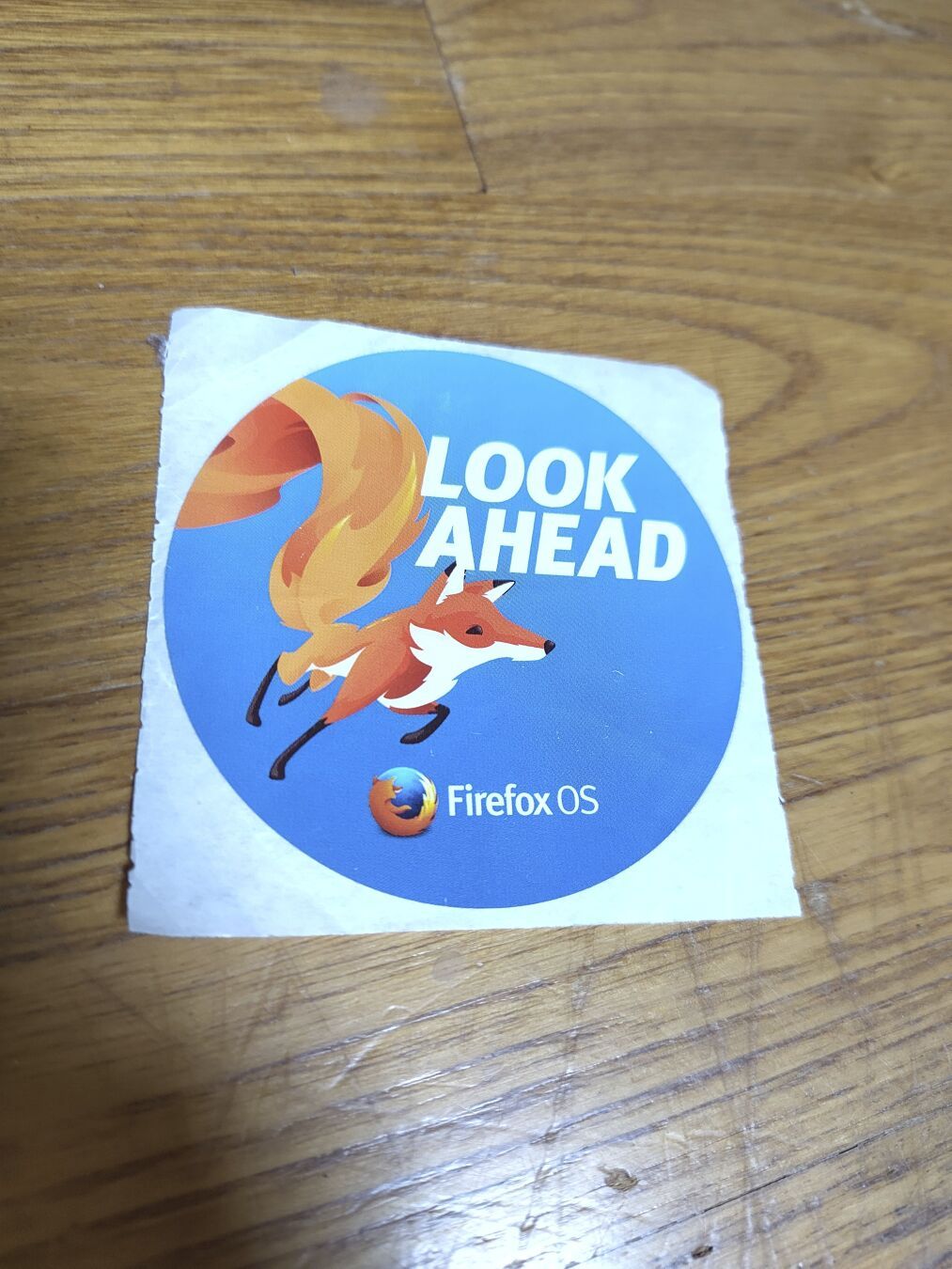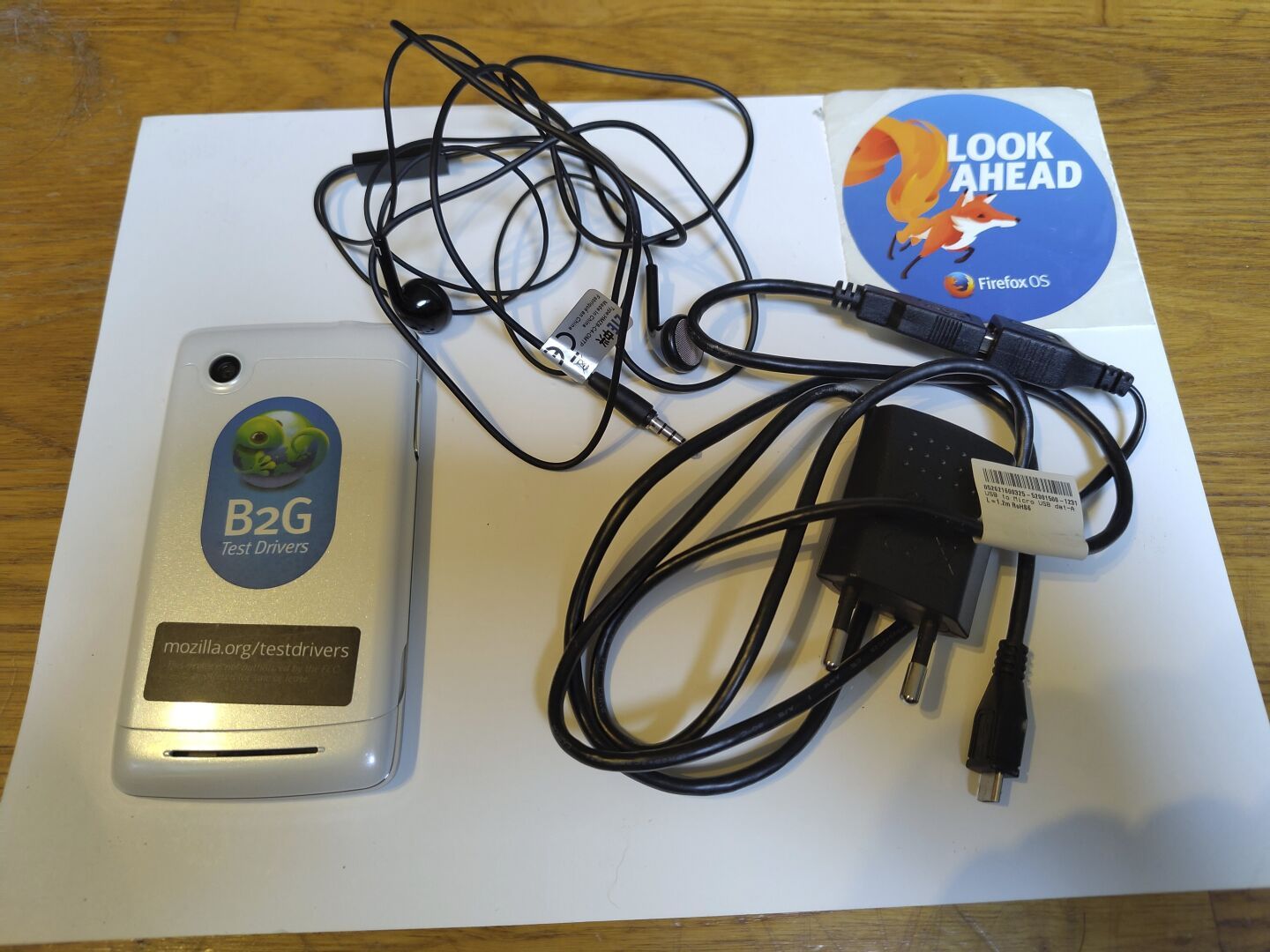I clearly remember, but can't date it. I was working for Mozilla messaging at the time (momo), being the QA lead for Thunderbird. It was at the end of one of the Mozilla All-hands, maybe in 2011 or 2012. At one of the ending keynotes, we were introduced to Boot 2 Gecko. A hack that would let US - Mozilla own the platform to run a mobile browser on. At the time, the iPhone was going strong and Google was trying to catch up with Android. MeeGo had been in development at Nokia for a while but was going nowhere even when Intel tried to help. Blackberry was slowly starting to die.
In the Silicon Valley everything was about mobile, mobile, mobile and the emerging South Easter Asian market, where people would skip computers and use smartphones to join the internet revolution. We were struggling with Chrome and the massive investment by Google to take market share. Our Firefox port on Android was having loads of issues. We were denied by Apple's policies to be present on iPhones. I was running Nightly on my then Galaxy S Samsung android powered phone. As android was open source, the idea to use it as a base for a complete phone OS that would make the web a platform emerged has an idea. At that time, Mozilla consisted of around 600 employees, all working on Firefox on the desktop. Most of our huge community was helping the project, making it available in many languages (Like https://en.wikipedia.org/wiki/West_Frisian_language), helping with some marketing efforts too.
B2G, or Android's version, were not Mozilla first effort to be present on Mobile. The first effort I'm aware of is Minimo, who was targeting Palm like handheld devices.
As I said above, Mozilla's management was really afraid to miss the mobile revolution. They hired someone from the mobile industry to run the company, this led to some culture changes : no more a flat org, but a pyramidal one with middle managers. Culture became way less engineering centric, and started being a bit more top -> down. Focus was now solely on B2G. This impacted my work, because it was decided that Thunderbird had no future (and no business model to support its development). That meant I changed roles in Mozilla and joined the IT organization, as I wanted to see the server side of Email (this was long before Mozilla switched to Google workplace for email). I always felt that B2G to be renamed Firefox OS, killed the team I was part of, that was working on TB. I have no insight on who made the decision and why, but that how I felt. This made me not liking B2G.
Besides becoming more like a normal company, the new CEO grew the size of our teams, added project managers, Sales people, to make sure B2G would reach a huge audience. We started making deals with phone carriers, and each of these had different requirements. We also made deals with phone makers, our Taiwan office was set up to be as close a possible as the Chinese phone makers - so we'd be at the edge of the mobile phone market. Having different deals owner made the life of the project complicated, as each of our partners had different sets of requirements for their go-to market plans. The teams were busy implementing X for partner X and Y for partner Y. Sometimes X and Y would conflict :-( With the rapid development pace, quality was omitted to reach launch deadlines. As B2G was the priority, this also meant that Firefox desktop was neglected and was slowly loosing ground to chrome. Not that we could compare the size of the devs teams, but as nobody in upper management cared about desktop, it was there, that's it. Remember that Firefox desktop was the cash machine that paid for all the rest. Without Desktop, no revenues. Then all of a sudden, by the end of 2015, Mozilla pulled the plug on B2G and got back and focused on its source of revenue, desktop. By then Mozilla had doubled in size, reaching almost 1200 employees.
I first got to play with Firefox OS back in 2012 when I switched to IT.
This was a TURKCELL MaxiPLus5. This was slow and unusable. I had work needs, so I never used it. The phone was available upon request for Mozilla employees willing to try B2G out. I'm not sure many were sent or used. After that, testing B2G as an employee was complicated if you were not working on the Firefox OS team. By early 2015, someone at the great idea to dogfood the product and four hundred phones were made available to employees. I requested one. This was a Sony Xperia phone, it came with a protective cover, a mandatory mailing list to share your experience with it and file bugs if you could. I was finally getting interested with the product. Took it with me as a secondary phone. That summer I went to Mongolia and the carrier/OS didn't work together, so had to use it over Wi-Fi. I managed to find a few bugs with the email client (don't know why, but that's where I found bugs, as well as in picture/metadata handling). I was not alone reporting bugs, they were getting fixed too. But nonetheless, Management decided the experiment was over. Well that's not completely true, it lives at https://www.kaiostech.com/
With retrospect, I think B2G was a good idea - challenging Apple would also have been a good idea, as we had an internal demo of gecko powered Firefox for iOS. Owning the complete stack was the right approach. It gives you the power to have something that work nicely on the devices you support. I think the development approach we took was the wrong one. We were too in a hurry and that ended up neglecting Desktop. I believe we should have engaged potential partners way later, with a better, more finished and more QAed product. We should have grown to work on B2G, but not at the expense of our source of revenue. We should have dogfooded the product a lot more and once ready reached out to partners. And then start using our community to market the product and gain market share and all. The death of B2G, also meant the death of most of our engagement with ordinary people, known as the Mozilla community.
I probably forgot some details - I'll gladly edit If I feel that the things I have forgotten are important.
Vision from a developer who worked on the graphics stack, in French https://linuxfr.org/nodes/107897/comments/1643786


Comments
I'm curious to hear what you think about the future of Firefox? For a long time it was my default browser, but then some essential online services I use stopped supporting the extensions. (I guess because marketshare is dropping). Brave is now my default.
To ask a direct question; do you think that there will be a Chromium-version of Firefox on the Mozilla roadmap?
Sorry missed your questions. For brave you should read https://www.spacebar.news/stop-using-brave-browser/ .
I don't have a clue for the future, I hope we keep an alternative to chrome blink based browser, I'm following servo, but servo lacks a UI.
To ask a direct question; do you think that there will be a Chromium-version of Firefox on the Mozilla roadmap?
No.